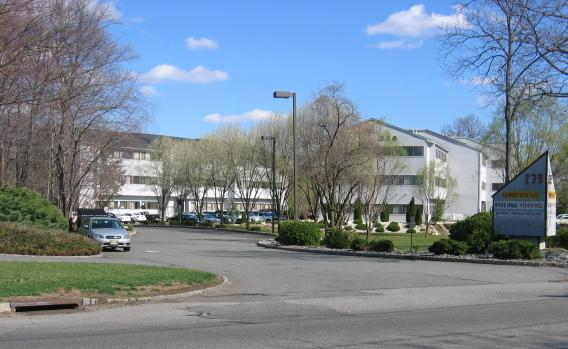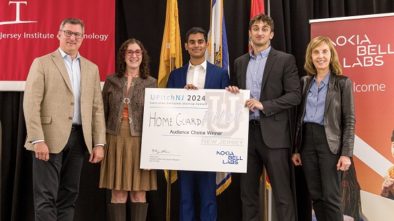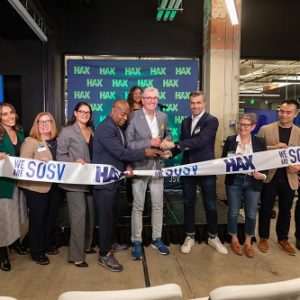These are the First Six Clean Tech Companies Selected for R&D Vouchers by the CSIT
The Commission on Science, Innovation and Technology (CSIT) revealed six of the startups – with more in the pipeline – that participated in its Clean Tech Research and Development (R&D) Voucher Program.
The $435,000 program connects clean tech startups to facilities in the state that can accelerate their growth by providing the specialized equipment they need to conduct R&D projects or enhance commercialization.
For years, officials have been talking about “unlocking” New Jersey’s assets and making them available to startups. Now it has, at least in the clean tech space, which involves some of the hardest technology to get off the ground.
“Through the Clean Tech R&D Voucher Program, we are able to support the cultivation of innovative technologies in our state’s earliest stage companies and showcase the breadth of amenities that our world-class universities offer to the innovation community,” said CSIT Chairman Gunjan Doshi. Doshi noted that, in addition to the six approvals, another 10 applications are under review.
Through the Clean Tech R&D Voucher Program, eligible applicants receive vouchers to subsidize the costs associated with using equipment at a New Jersey university or federal laboratory for product testing and development.
Each eligible applicant can apply for multiple vouchers up to a cap of $15,000 within any 12-month period. An approved voucher is valid for three months.
The program funds work on projects that are developing clean technologies to recapture or prevent emissions of greenhouse gases and/or criteria pollutants. The following technology areas are eligible under the program: chemicals/advanced materials, energy distribution/storage, energy efficiency, energy generation, green buildings, transportation, waste processing, and water and agriculture.
CSIT continues to accept program applications on a rolling basis. The application is available here. The program was developed in coordination with the New Jersey Board of Public Utilities (NJBPU) and the New Jersey Economic Development Authority (NJEDA).
A New Jersey clean-tech asset map listing university and federal laboratory resources in the state is available on the CSIT website.
The following startups were approved for vouchers:
BRISEA Group (Parsippany) has provided environmental and energy professional services, technology and know-how transfer from the United States to developing nations for over two decades. With support from the Clean Tech R&D Voucher Program, the company is using equipment at NJIT’s Otto H. York Center to develop technology that will enable the massive disinfection of personnel and medical equipment, material surfaces and water that humans come in contact with.
Eion NJ Corporation (Princeton), is developing a specialty fine-grained mineral product that rapidly captures and stores CO2 when applied to agricultural soils. Funding from the Clean Tech R&D Voucher Program will support the corporation’s use of equipment at the Rutgers University’s School of Environmental and Biological Science’s greenhouses to further its efforts. Eion NJ Corporation previously received funding from CSIT’s Clean Tech Seed Grant Program.
HiT Nano (Bordentown) develops next-generation, low-cost and high-performance lithium-ion (Li-ion) battery materials and energy-storage systems by using novel high-temperature nanotechnologies. The company will use equipment at Princeton University — specifically, the Princeton Institute of Materials’ Imaging and Analysis Center and Micro and Nano Fabrication Center — to further the R&D on its technologies.
Michrinik Technologies (Newark) is a green technology company focused on creating new materials for energy storage applications. Support from the Clean Tech R&D Voucher Program will help the company offset the cost of using equipment at NJIT’s Makerspace and Otto H. York Center, as it works toward the commercialization of its products.
NanoSepex (Bridgewater), is an environmental research company that is developing what it considers to be next-generation desalination and water-treatment technology. The company plans to use equipment at NJIT’s Laboratory for Analytical Chemistry and Nanotechnology to further its development of technologies for treating industrial wastewater (such as power plant and fracking water) and, ultimately, for reducing greenhouse gas emissions.
RRTC (Bella Mead), is developing advanced composite materials for myriad uses based on Low Temperature Solidification (LTS) technology, which was originally developed at Rutgers University. The company is using vouchers from the Clean Tech R&D Voucher Program to offset the costs of equipment at Rutgers University’s Department of Materials Science and Engineering, as it produces materials for such applications as wind turbine blades, wood substitutes and a new solid-state carbon-capture system.




